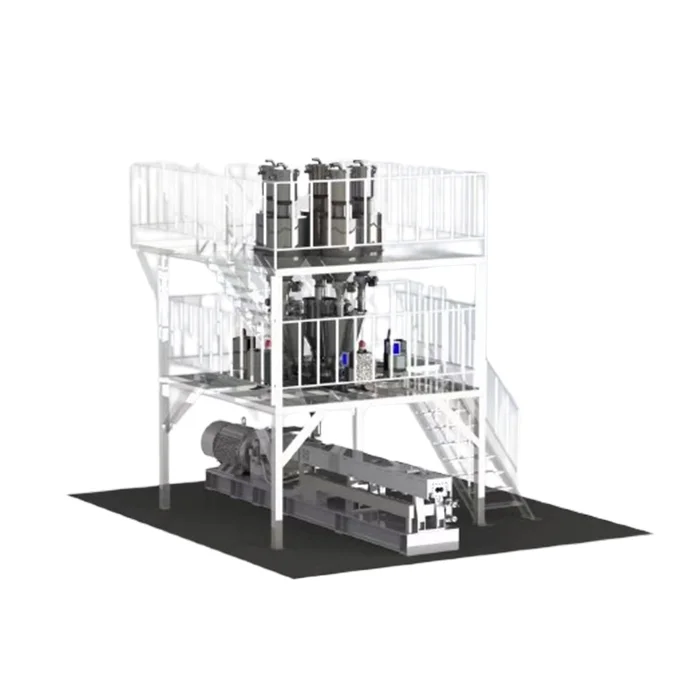- This topic is empty.
-
AuthorPosts
-
2025-07-29 at 2:59 pm #4387
In today's competitive industrial landscape, the demand for advanced materials with tailored properties continues to grow. From automotive components to electronic devices and high-strength consumer goods, engineering plastics have become the backbone of many high-performance applications. At the core of this innovation is a process called engineering plastic compounding—a specialized method used to enhance the physical, mechanical, and thermal properties of base polymers.

So, what exactly is engineering plastic compounding, and why is it so vital to modern manufacturing?
What Is Engineering Plastic Compounding?
Engineering plastic compounding is the process of blending base polymers (such as PA, PC, PBT, or ABS) with various additives, fillers, and reinforcements to produce customized plastic formulations. The goal is to achieve specific performance characteristics—such as improved flame retardancy, UV resistance, tensile strength, or impact resistance—that meet the demanding requirements of specific applications.
This process typically involves:
-
Feeding raw materials into a compounding extruder
-
Mixing and melting using twin-screw extrusion technology
-
Dispersing additives evenly throughout the matrix
-
Pelletizing the final compound for downstream processing (such as injection molding or extrusion)
Why Is Compounding Critical for High-Performance Applications?
1. Customized Material Properties
Every application has unique demands. Engineering plastic compounding allows manufacturers to tailor material properties to exact specifications. For example, in the automotive industry, materials must be both lightweight and heat-resistant. In medical devices, they must be biocompatible and chemically inert. Compounding makes this possible by fine-tuning the polymer structure and additive content.
2. Improved Processing Efficiency
Well-compounded materials exhibit better flow behavior, reduced shrinkage, and higher dimensional stability—making them easier to mold and less prone to defects. This leads to fewer rejections and increased productivity on the factory floor.
3. Cost Optimization
By adding fillers such as glass fiber, talc, or calcium carbonate, the cost of raw materials can be reduced while still achieving target performance metrics. Compounding also allows for the use of recycled polymers without compromising quality, supporting more sustainable production practices.
4. Enabling Next-Generation Applications
From 5G communication equipment to electric vehicles and smart home devices, emerging technologies require materials that go beyond the capabilities of standard polymers. Compounded engineering plastics enable breakthroughs in strength, conductivity, flame resistance, and aesthetic finish—making innovation possible.
The Role of Jiangsu Kaifeng Xinye Intelligent Equipment Co., Ltd.
As a leading force in mechanical innovation, Jiangsu Kaifeng Xinye Intelligent Equipment Co., Ltd. plays a pivotal role in advancing plastic compounding technology. With deep expertise in foaming extrusion and polymer mixing systems, the company provides intelligent equipment solutions that ensure precise material blending, high output efficiency, and consistent product quality.
Kaifeng Xinye’s twin-screw extruders and auxiliary systems are widely adopted in the engineering plastic compounding industry, particularly in applications requiring:
-
Fiber-reinforced polymer compounding
-
Flame-retardant plastic formulations
-
Conductive or antistatic plastic compounds
-
High-viscosity material processing
By combining robust mechanical design with intelligent automation, Kaifeng Xinye helps compounders optimize processing conditions, reduce energy consumption, and accelerate time to market.
Conclusion
Engineering plastic compounding is more than just mixing materials—it's a strategic process that enables performance, innovation, and efficiency across industries. For manufacturers looking to stay ahead in high-demand sectors like automotive, electronics, or sustainable packaging, mastering this process is not optional—it's essential.
With advanced equipment solutions from Jiangsu Kaifeng Xinye Intelligent Equipment Co., Ltd., compounders and manufacturers can meet the exacting demands of modern applications while improving operational control and material performance.
http://www.kaifengmachine.com
Jiangsu Kaifeng Xinye Intelligent Equipment Co., Ltd. -
-
AuthorPosts
- You must be logged in to reply to this topic.

